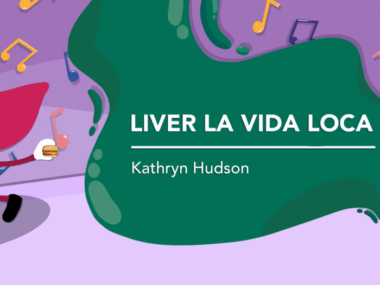Madrigal wins US patent for Rezdiffra dosing regimen in MASH
Approved therapy for fatty liver disease type now protected through 2044
Written by |

The U.S. Patent and Trademark Office (USPTO) is granting a patent for Rezdiffra (resmetirom) — Madrigal Pharmaceuticals’ approved therapy for metabolic dysfunction-associated steatohepatitis (MASH), a serious form of fatty liver disease — that will provide the drug protection for nearly two decades, according to a notice of allowance received by the company.
The new patent is based on Madrigal‘s claim to Rezdiffra’s weight-based dosing regimen, which adjusts the drug’s dosage based on a patient’s body weight. Specifically, the drug is given at 80 mg for individuals weighing less than 100 kg (220 lbs), and at a dose of 100 mg for those with a weight of 100 kg or more.
A notice of allowance means the USPTO has completed its review and has decided to issue a requested patent. Once officially granted, the patent will be listed in the U.S. Food and Drug Administration’s Approved Drug Products with Therapeutic Equivalence Evaluations, commonly known as the FDA’s Orange Book.
The patent will provide Madrigal protection through Sept. 30, 2044, according to a company press release.
“This issuance marks a pivotal milestone in our long-term Rezdiffra strategy,” said Bill Sibold, Madrigal’s CEO. “It recognizes the value of our pioneering clinical development program and will allow our team to continue driving innovation for patients with MASH for years to come.”
MASH, formerly known as nonalcoholic steatohepatitis or NASH, is a liver condition marked by the accumulation of fat in the liver, which is accompanied by inflammation and progressive scarring, or fibrosis. Over time, this scarring can impair liver function and, in advanced stages, may lead to cirrhosis — an irreversible state of liver damage that can ultimately result in liver failure or the need for transplant.
Rezdiffra, a once-daily oral medication, works by selectively activating thyroid hormone receptor beta (THR-beta), a receptor found primarily in liver cells; its reduced activity has been linked with impaired fat metabolism and liver fibrosis in MASH. By restoring THR-beta function, Rezdiffra aims to reduce liver fat, slow disease progression, and prevent further scarring.
Rezdiffra approved last year in US for adults with MASH
The FDA approved the therapy in March last year for adults with MASH and moderate to advanced liver fibrosis without cirrhosis. That decision made Rezdiffra the first and only approved treatment — used alongside diet and exercise — for adults in the U.S. with this condition. The drug’s clearance was granted under the FDA’s accelerated approval pathway, which allows earlier access to therapies for serious conditions based on early clinical evidence likely to predict clinical benefit.
The approval was partly supported by promising results from the ongoing MAESTRO-NASH Phase 3 clinical trial (NCT03900429), which is evaluating once-daily Rezdiffra versus a placebo in more than 1,700 adults with biopsy-confirmed MASH and significant liver fibrosis. Interim findings from the first 966 participants showed that treatment with Rezdiffra led to significantly higher rates of MASH resolution and fibrosis reduction than the placebo. Participants are being followed for up to 4.5 years, with long-term data expected to support full FDA approval.
Additional early safety data came from the Phase 3 MAESTRO-NAFLD-1 clinical trial (NCT04197479), which involved more than 950 adults with presumed MASH. One-year data showed that Rezdiffra was safe and well tolerated, and significantly reduced liver fat compared with a placebo. Recent data from its ongoing open-label extension are showing that, after two years of treatment, the therapy reduced liver scarring by at least 25% in half of the patients with compensated cirrhosis — a stage where fibrosis is present but the liver still functions.
Rezdiffra is also being evaluated in another Phase 3 clinical trial, called MAESTRO-NASH OUTCOMES (NCT05500222). That study is assessing clinical outcomes in more than 800 MASH patients with well-compensated cirrhosis, aiming to expand the eligible patient population.
Last month, the therapy also received a positive opinion from the European Medicines Agency’s Committee for Medicinal Products for Human Use (CHMP), recommending its approval in the European Union for the same patient population.







